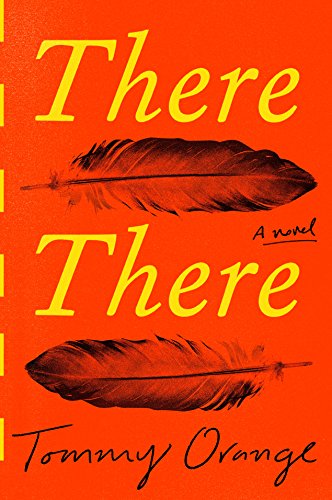
Tommy Orange’s There There was a finalist for the 2019 Pulitzer. It’s a story about Native Americans, many of whom live in Oakland, California, and how their lives entwine at a powwow.
I found the writing to be compelling and the characters were like old friends. The author toyed with perspective, using even the second person voice for some of the character’s stories.
For instance, one of the character’s description of a warning from his mother comes direct at us, and brings us closer to the telling simply by using the second person narrative.
“Later you remember your mom saying to take drugs was like sneaking into the kingdom of heaven under the gates. It seemed to you more like the kingdom of hell, but maybe the kingdom is bigger and more terrifying than we could ever know. Maybe we’ve all been speaking the broken tongue of angels and demons too long to know that that’s what we are, who we are, what we’re speaking. Maybe we don’t ever die but change, always in the State without hardly ever even knowing we’re in it.”
My biggest problem with the book was keeping up with the sheer number of characters, most of which make a new appearance throughout the book, but their whole stories might be told throughout a few decades time. This jumping around made it difficult to keep track, to the point I was jotting down little blurbs about the characters (my x-ray feature) to keep their stories inline.
Spoilers ahead
At the big ending, when all these characters came together, it was the powerful evocative scene that mirrored a lot of what we see portrayed as Native American encounters of old through media. The murderous scene at the powwow was evocative of the battles described in the opening of the book. Of course, we’re often in the third person inside the individuals head, feeling the bullets hit them, the waves crashing over them, one boy who was shot described the blades of green grass on his face as the only feeling he had. The bullets were described as pulling the men into the ground, towards the core of the earth. It was a callback to the slaughters that happened to Natives throughout history. The betrayals, often times carried out by neighboring tribes.
The ending did leave me a bit wanting. I grew attached to the three boys who had ordinary names, but spelled ridiculously, Lony, Orvil, and Loother. Orvil was shot as he was one of the native dancers. But we never find out if he survived. We get a clue by the grandmother reading the door swiveling eight times as a good omen, and then she pays attention to the doctor. But why is the doctor coming to them such a short time after he was brought into the hospital. It seems to me like Orvil didn’t make it, and the Red Feather family is going to have to learn to cope with this loss. One that will forever shape their family, even as lost members are finding their way back to the fold.
I can understand why There There did not win in 2019, as I believe Overstory was a better novel. But this was an impeccable tale, told with real skill and should be one that writer’s look to for inspiration.